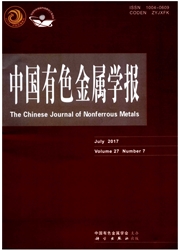

 中文摘要:
中文摘要:
在细菌-矿物接触模式和用微孔滤膜将细菌和矿物隔离的非接触模式下,研究钾细菌(CGMCC1.2411)对富钾页岩浸出分解的影响,并对浸出过程中富钾页岩表面生物膜和钝化膜的形成原因及其对 K、Si和Al的溶出影响进行分析。结果表明:与非接触模式相比,细菌-矿物接触模式下钾细菌的对数生长期延长了2 d,且具有较高的产酸、产蛋白质和多糖的能力。比较细菌-矿物接触模式和细菌-矿物非接触模式可知,细菌-矿物接触模式更有利于促进富钾页岩的浸出,但对K、Si和Al的溶出贡献存在一定的差别。在浸出的0-6 d内,K、Al的溶出主要受间接作用的影响;在浸出的6-15 d内,主要受直接作用的影响;在整个浸出周期内,Si的溶出主要受间接作用的影响。在细菌-矿物接触模式下,矿物表面形成的生物膜对富钾页岩的溶蚀及K、Si和Al的溶出具有促进作用;细菌代谢产物对Al的溶出具有抑制作用,溶出的Al易于在细菌代谢产生的胞外多糖絮凝作用下生成水合铝石,有机酸铝沉淀是导致富钾页岩表面钝化和抑制富钾页岩进一步溶解的原因之一。
 英文摘要:
英文摘要:
The microbial decomposition of potassium-bearing silicate minerals includes the direct mechanism and the indirect mechanism, but the contribution of each mechanism to the mineral weathering is still in controversy. The effect of potassium-solubilizing bacteria on decomposition of potassium-rich shale in the bacteria-mineral contact/uncontact model was studied by employing microfiltration membrane to segregate mineral powders from bacteria, and the selective analysis of mineral surface biofilm and passivation and their effects on release of K, Si and Al were also investigated. The results show that the potassium-solubilizing bacterium grows in the exponential phase for more than two days, and has higher ability of producing acids, proteins and polysaccharides in the bacteria-mineral contact model, comparing with the bacteria-mineral uncontact model. The bacteria-mineral contact model is more profitable for leaching of potassium-rich shale than the uncontact model, but its relative contribution to the release of different elements of K, Si and Al is different. The release of K and Al is controlled mainly by the indirect mechanism during bioleaching process in 0-6 d, and mainly by the direct mechanism in 6-15 d. However, the release of Si is determined mainly by the indirect mechanism in the whole bioleaching process. The biofilm formation on mineral surface can promote the corrosion of potassium-rich shaleand the release of K, Si and Al in the bacteria-mineral contact model. The bacterial metabolites have an inhibiting effect on the release of Al, and have an effective flocculation effect on Al. The precipitates of diaspore and organic acid aluminum are one of the primer causes of surface passivation of potassium-rich shale, and the surface passivation has obviously inhibition effect on the dissolution of potassium-rich shale.
 同期刊论文项目
同期刊论文项目
 同项目期刊论文
同项目期刊论文
 期刊信息
期刊信息
